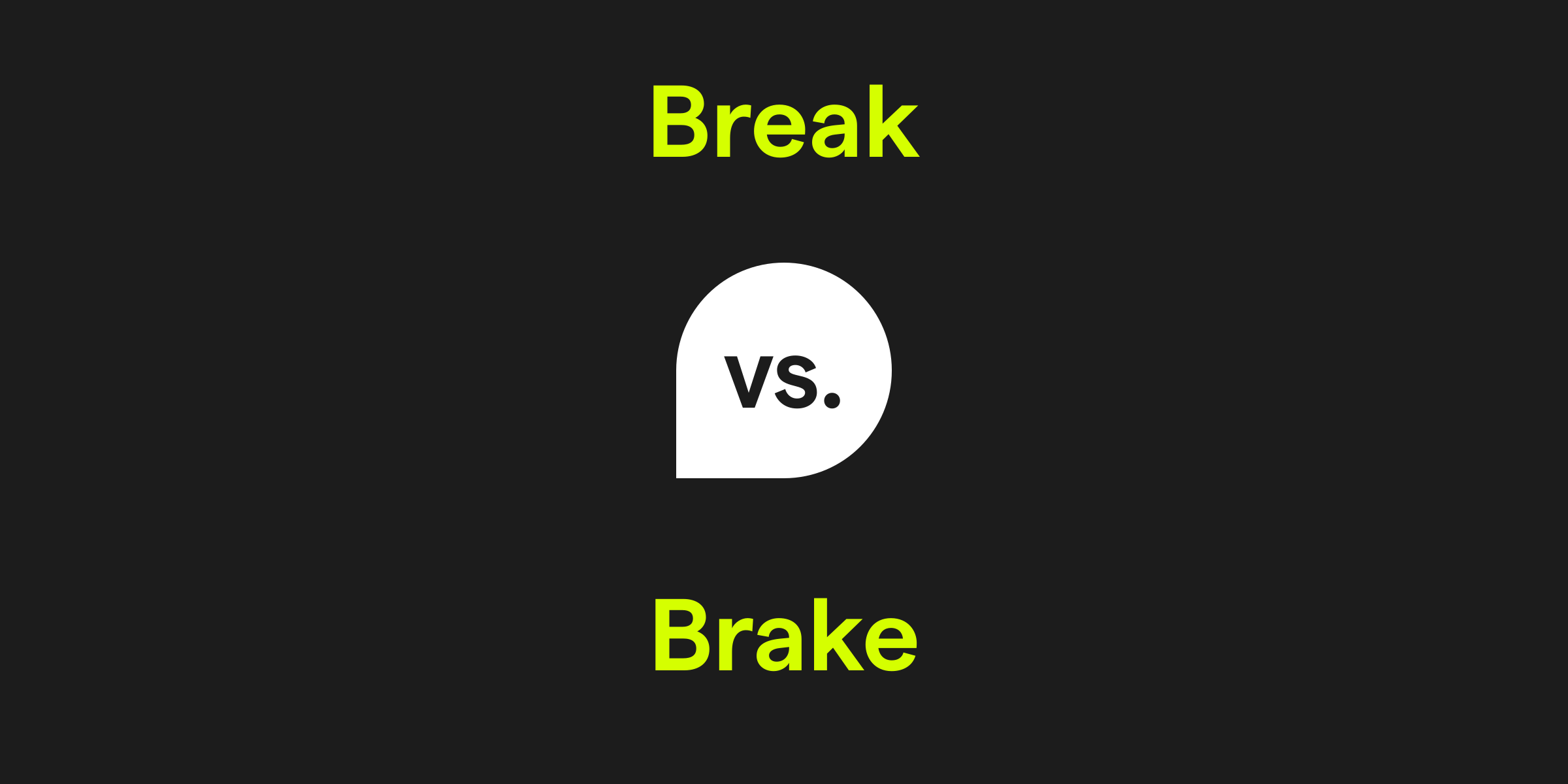Brake vs. Break: What's the Difference?
Understanding the distinction between brake and break is crucial, as they are homophones with entirely different meanings. A brake is a device used for slowing or stopping a vehicle, effectively inhibiting motion. Conversely, break refers to the act of separating into pieces, either by force or damage, or to interrupt a continuity. These terms are often confused due to their similar pronunciation, but their contexts of use are very different.

How do you use the word brake in a sentence?
The term brake is commonly employed in contexts related to vehicles and machinery, where one needs to reduce speed or come to a halt. It serves as both a noun and a verb, referring to the device itself or the action of utilizing this device. In essence, when commanding someone to slow down a car, you would tell them to 'brake.'
Examples of brake in a sentence
- She pressed the brake pedal hard to avoid hitting the obstacle in the road.
- The mechanic said the squeaking noise was due to worn brake pads.
- When going downhill, it's safer to use engine braking rather than riding the brake.
How do you use the word break in a sentence?
Break is primarily used as a verb to signify the act of causing something to come apart or to fail in function. It can also refer to a period of rest or interruption in work. The term can further be applied in numerous figurative senses, such as breaking the news or breaking a habit, further demonstrating its versatile use in language.
Examples of break in a sentence
- I accidentally dropped the vase, and it broke into a dozen pieces.
- We decided to take a break after two hours of non-stop driving.
- The news of the scandal broke last night and spread quickly.
Brake and break definitions, parts of speech, and pronunciation
Brake definition:
Brake (noun): A device for slowing or stopping the motion of a vehicle or mechanism. Brake (verb): To operate the brake device, which causes a vehicle or moving part to slow down or stop.
Brake parts of speech:
Brake pronunciation:
Brake is pronounced as /breɪk/.
Break definition:
Break (verb): To separate into parts, typically suddenly or forcibly; to interrupt a continuity, sequence, or course. Break (noun): An interruption or pause in activity or work.
Break parts of speech:
Break pronunciation:
Break is pronounced as /breɪk/, identical to 'brake'.
Brake (noun): A device for slowing or stopping the motion of a vehicle or mechanism. Brake (verb): To operate the brake device, which causes a vehicle or moving part to slow down or stop.
Brake parts of speech:
- As a noun: Always remember to check your brakes before a long trip.
- As a verb: If you brake suddenly, the car behind might not have enough time to respond.
Brake pronunciation:
Brake is pronounced as /breɪk/.
Break definition:
Break (verb): To separate into parts, typically suddenly or forcibly; to interrupt a continuity, sequence, or course. Break (noun): An interruption or pause in activity or work.
Break parts of speech:
- As a verb: If you apply too much force, you might break the handle.
- As a noun: The workers went outside for a break at noon.
Break pronunciation:
Break is pronounced as /breɪk/, identical to 'brake'.
Brake vs. break in a nutshell
While brake and break are pronounced the same, they have distinct meanings and functions. Brake relates to slowing or halting motion, most commonly used in the context of vehicles. Break describes an action of force causing separation or damage, or an interruption in continuity. Remembering the context of each word helps to avoid confusion in their usage. Interestingly, despite the functional difference, both share the same pronunciation, /breɪk/.
Get AI Writing Assistance Wherever You Type
Make sure your vocabulary is on point and every punctuation mark is in the right place, no matter where you’re working. Grammarly works across more than 1 million websites and apps so you can improve your writing without copying, pasting, or breaking focus.

More Commonly Confused Words
Interest piqued? Pore (not pour) over other commonly confused words to help your writing reach peak (not peek) performance.